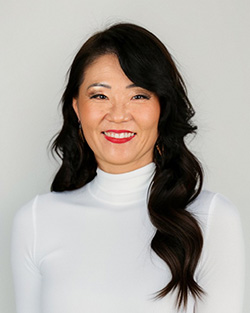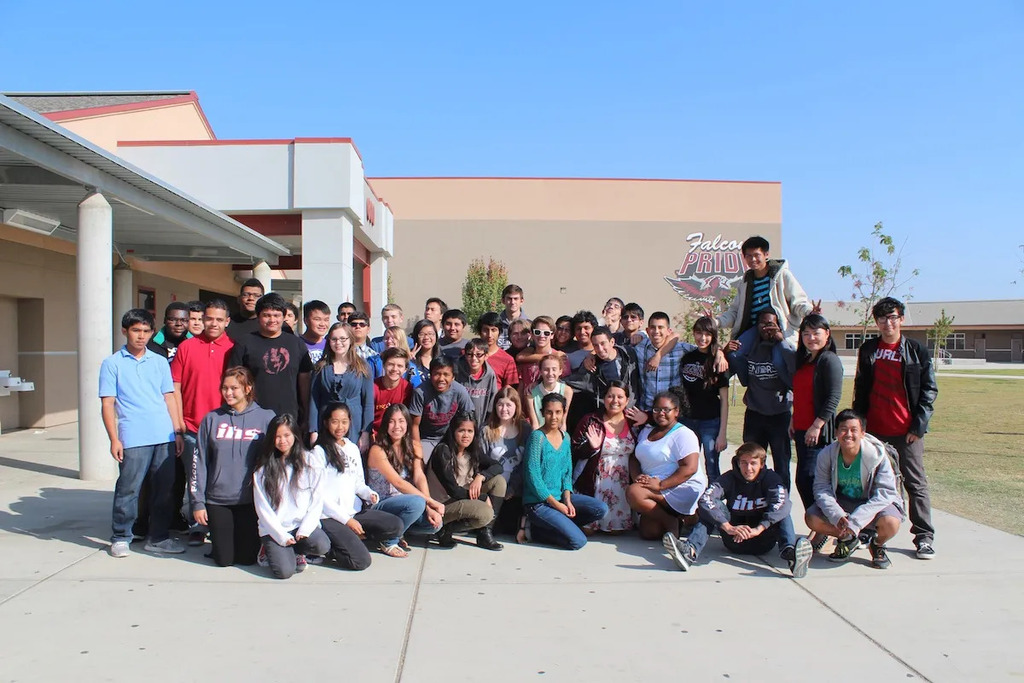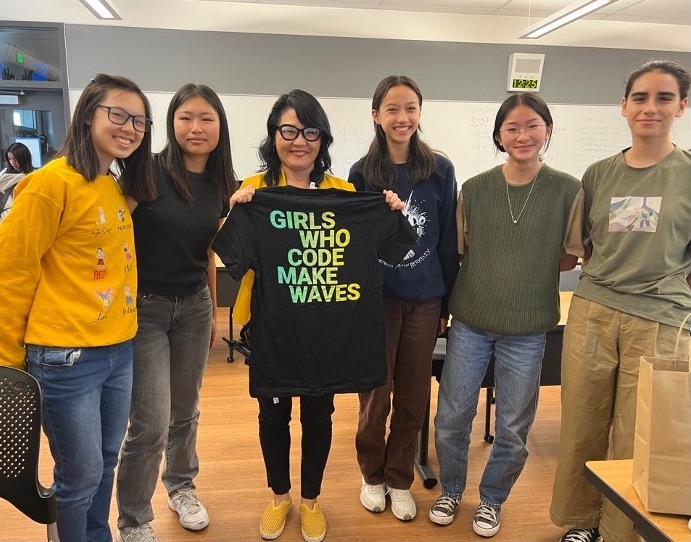
Advancing CS equity in school works best when educators at every level are on board. Mountain View High School principal Kip Glazer reflects on this value as a part of her work – and is currently serving with the CSTA Equity Fellowship, a selective, year-long program designed to develop leadership in equitable teaching practices and advocacy. Read on to learn how Kip is building an intentional framework for more computational thinking at Mountain View High School.
I am currently the Principal of Mountain View High School (MVHS) in Mountain View, CA, home of the Spartans! #SpartyUp
I have been an educator, district-level technology coach, and school administrator for over 20 years. I am also an immigrant, English-learner, and proud mother of two Army officers. I became involved in computer science (CS) education when I was teaching in Bakersfield, and began my Doctorate in Learning Technologies at Pepperdine, where I learned to code and began designing and teaching a Web Development class.
As I gained additional knowledge, I learned the importance of creating an accessible environment where all of my students, regardless of their prior knowledge, could explore and play. I ended up doing my dissertation on gaming, and I also started the Independence High School (IHS) Coding Club and the IHS League of Legends Club because I believed in providing a variety of opportunities and experiences for all our students.

In order to help all our students flourish, a principal must be able to build an effective school system that prepares our students for the future that we can’t see at the moment. Computational thinking skills and digital literacy are two of the foundational skills that are content-neutral yet vital for our students’ future success in whatever future that they choose to pursue.
To teach these skills, I have focused on creating a variety of Career Technical Education (CTE) pathways that incorporate computational thinking and digital literacy skills since I arrived at MVHS.
I have worked diligently to set an example for our staff by continuing my own learning on computational thinking development and digital literacy improvement. I am also working directly with our Girls Who Code Club to host a career in AI Panel, and I recently joined the EngageAI Practitioner Advisory Board. I currently serve as a Computer Science Teachers Association Equity Fellow because I take my responsibility as a lead learner seriously. I have shared informative articles with my staff and have actively engaged in planning for professional development. Finally, I have published articles on the topic so that I can contribute to the educational field at large.
In addition to the personal and financial benefits that it can provide for our students by pursuing a career in the STEM field where CS education is foundational, our nation and the world at large need a strong computer science education for all students in the knowledge economy. For example, we must have people who have the basic computational skills as well as logical reasoning skills as we continue to see the development and implementation of AI. While teaching basic computer coding and web design courses as a teacher, I saw my students developing computer skills. Most importantly, a strong CS education encourages students to develop perseverance and problem solving skills that are necessary for the world that has yet to be created.

I would encourage them to read a lot of different books, travel, and pursue playful and fun hobbies in addition to learning to code. I would suggest they learn about how to collaborate and lead others so that they are able to teach their students to become creative problem solvers. With the advancement of AI, technical solutions are getting easier to create. For instance, GitHub has lots of code that is extremely useful. Because our society will require much more nuanced and creative solutions for the future, we need educators to be able to connect with students in a fundamentally humanistic manner, and arts and music provides such venues for our students, which will ultimately improve the STEM education for all.
I dream of a future where all students have full access to the highest quality CS education. I intend to show up for the work as well as my colleagues who are doing their part. I am so honored to be in this space with so many talented, kind-hearted people who inspire me. I tell people that I see the world as a glass overflowing with so many possibilities! I hope that we can continue to stay positive while doing this important work.